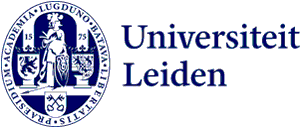
Struggle in the region: China and Taiwan fight for support in Central America
Honduras recently severed diplomatic ties with Taiwan after 82 years. In doing so, the country is following the trend of other Central American countries that have turned their backs on the Asian island in recent years. Why are these countries making this choice now and what does it mean for Taiwan's position?
To explain the current situation, we have to go back to the beginning of the Cold War. It is 1949 and the Chinese communists have just expelled the nationalist government to Taiwan. It also marks a geopolitical split: communist countries are establishing official ties with China, capitalist countries like the United States with Taiwan. 'In the 1970s, all that changed, when US President Nixon visited China. Then gradually more capitalist countries switched to a diplomatic relationship with China, which automatically made them stop recognising Taiwan,' says Associate Professor Casper Wits.
Financial aid as a diplomatic tool
The group of countries with exclusively diplomatic relations with Taiwan has since been limited to relatively poor Central America and a few island states. Taiwan tries to keep its few allies friendly through financial aid. 'They improve a port or repair an airport, or they print all the books for schoolchildren in a country. That seems like a good deed, but when you start looking at how much it actually all costs, it's not all that bad,' says Professor Patricio Silva. 'It is good press, though.'
Still, Taiwan seems to be losing out to China. 'Taipei always tried to counterbalance China by offering a lot of aid to those small countries. In recent years, it’s just difficult to keep up with China,' says Wits. For instance, China is now building an expensive hydropower plant with its own money in Honduras, the last country to cut ties with Taiwan. 'Those countries do not have the financial resources for that kind of infrastructure investment themselves, so something like that is very attractive to them. In contrast, China thinks about the long term and it is not a problem for them to make such expenditures in the short term,' Silva explained.
Ongoing struggle
The battle for the region is therefore not over for now. Seven of the 13 remaining official Taiwanese allies are in the region. 'The countries that still recognise Taiwan are also making increasing financial demands on Taiwan. For instance, Paraguay has more or less indicated that they want more money in exchange for support,' says Wits. There are also rumours that Honduras had imposed the same demand on Taiwan before they switched to China.
Even when Taiwan goes along with the demands of its allies, they sometimes come dangerously close to switching sides. This also applied to Paraguay of late. 'There were elections recently in the country and people were convinced that the opposition would win. The opposition’s manifesto said it would immediately recognise China,' Silva says. It was only because of the ruling party's victory that the split did not happen. 'Change can therefore come with a change of power. A new president can sign something in a couple of seconds leading to an immediate break in diplomatic relations with Taiwan.'
Military support
Still, Wits and Silva agree that it is important to put these changes in a global context. Although Taiwan has officially lost many allies, it can still count on global support. 'There are many countries that are sympathetic to Taiwan despite not recognising it, such as the United States and Japan. Those ties are actually strengthening in recent years,' de Wits explained. Silva added: 'With the growing threat from China, diplomatic support from Central American countries has become less relevant. Diplomatic support provides some leverage, but, given the current situation, military support from Western countries in particular will be more significant for Taiwan.'
